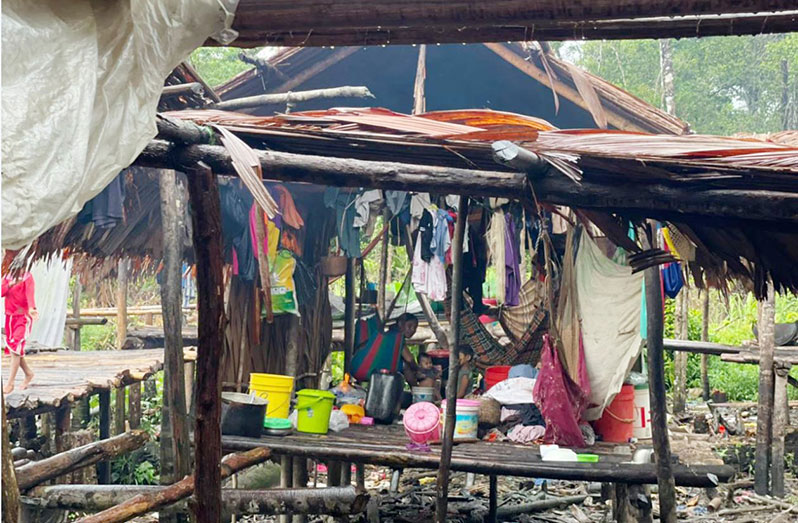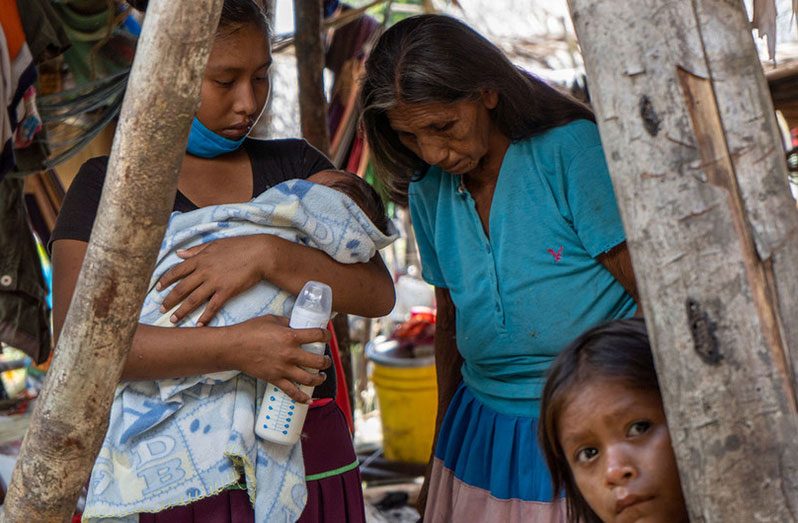THE United Nations High Commissioner for Refugees (UNHCR), the UN Refugee Agency, has registered its concern about the difficult living conditions of indigenous Warrau families from Venezuela who have settled in remote locations across Guyana, noting that more needs to be done to respond to the needs of the communities.
Speaking during a press briefing at the Palais des Nations in Geneva on Friday, Philippa Candler, UNHCR’s Multi-Country Office Representative in Panama, disclosed that an estimated 24,500 refugees and migrants from Venezuela, including some 2,500 indigenous Warraus are currently living in Guyana.
The migrants have settled in hard-to-reach areas near the Venezuelan border, such as Anabisi, Port Kaituma, in the North-West District, in Region One (Barima – Waini), which is home to some 250 Warraus, where access to services is limited, and the delivery of aid is hampered due to the lack of transport infrastructure and remoteness.
UNHCR has reported that assessments conducted in October and November among Warrau refugee and migrant households indicate mounting needs within the communities; they noted that families lack access to drinking water, and instead rely on rivers for drinking water, as well as bathing and defecation.
“Most Warrau have only one meal a day, or less. Lacking formal job opportunities, many of them mention resorting to begging, working odd jobs, often in exchange for food, selling handicrafts or depending on humanitarian assistance,” Candler said at the press briefing.
She highlighted that last week, the UNCHR received reports that Warraus at the Anabisi settlement were hospitalised, reportedly due to malnutrition and diseases related to poor sanitation conditions.

Having received these reports as well, the Guyana Government rushed emergency aid to the families and conducted a medical assessment of persons residing at the settlement. The UNCHR has been on the ground, coordinating with the government and humanitarian partners on how to best support the government-led response.
UNHCR has begun delivering food hampers, solar lamps, mosquito nets, Jerry cans, and other basic relief items to indigenous Warao from Venezuela living in northern Guyana. Water purification tablets were also provided by the Guyanese Civil Defence Commission – CDC. In Mabaruma, the UN refugee agency also delivered assistance to 130 individuals last week with additional items to be distributed in future.
On November 20, a team comprising of Minister of Health Dr Frank Anthony; Minister of Human Services and Social Security Dr Vindhya Persaud; Minister of Amerindian Affairs Pauline Sukhai; two paediatricians from Georgetown, and other medical personnel and support staff from Region One visited the settlement at Anabisi.
Dr Neil Samwaroo, a paediatrician from the Georgetown Public Hospital Corporation (GPHC), who accompanied the team, reported that during the visit, approximately 20 children were medically assessed, four of whom required medical attention, and were transferred to the Port Kaituma Hospital in the region.
Most of the children were diagnosed with conjunctivitis, also referred to as ‘red eye’; impetigo (a bacterial infection of the skin); mild diarrhoeal diseases, a collection of diseases caused by multiple viral, bacterial, and parasitic organisms; and upper respiratory tract infections, which are contagious infections caused by a variety of bacteria, and viral illnesses such as influenza.
The ministerial team had identified someone within the settlement with whom they can easily communicate, and who will be liaising with the regional officials.
Importantly, Candler explained that “increased humanitarian presence and timely support from the international community is needed to help the Government of Guyana respond to the needs of these communities.”
The UNHCR has been working with partners since 2019 to distribute material assistance, provide shelter and support to access education services to refugees, migrants and members of the host communities in Region One and across Guyana to help improve living conditions.
The agency also provides counselling, interpretation services and facilitates refugees and migrants access to government services including health programmes and vaccination against COVID-19.


.jpg)











